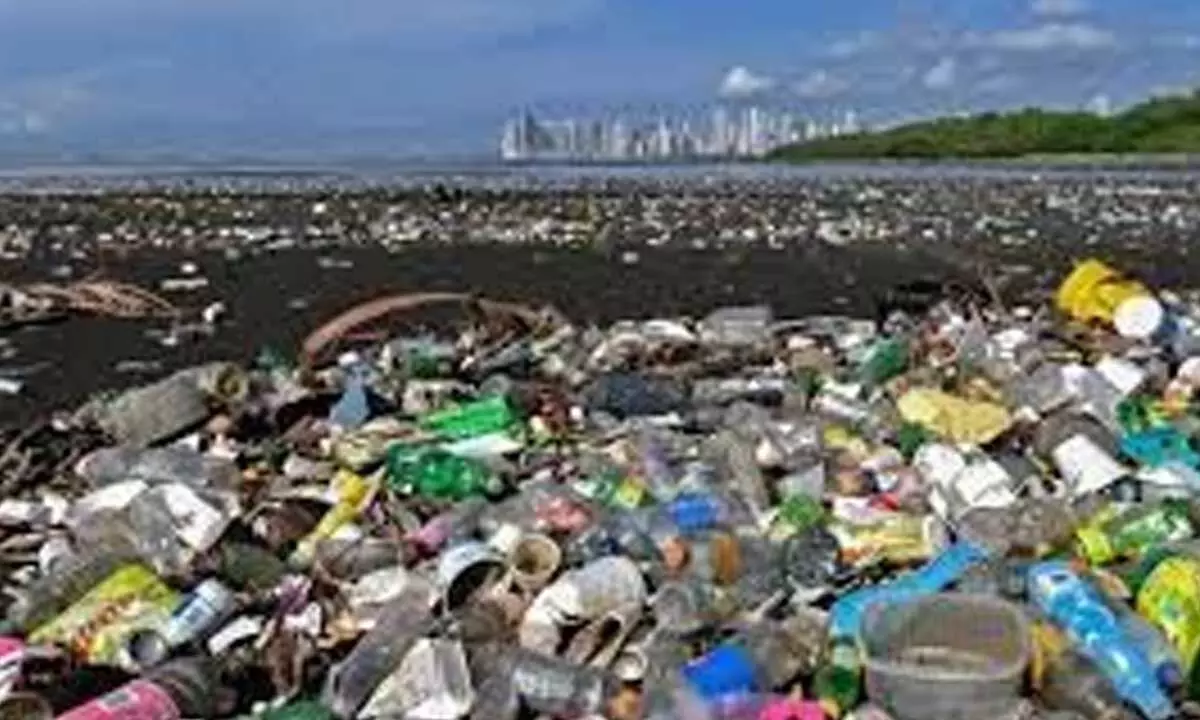Needed: Global pushback against plastics

Needed: Global pushback against plastics
There is ample climate denial and deception among fossil fuel companies. The plastic crisis has deep corporate roots: to protect our planet, they need to be exposed. Although recycling promoted as a solution to the plastic crisis, it's a toxic, carbon-intensive process that's effectively the same as incineration
This spring, I taught a new undergraduate course in Environmental Sociology. Most of my students took the course because they were curious to see what their desire to live more sustainably had to do with Sociology.
By the third week – after a deep dive into the troubling connections between fossil capitalism (the dependence of capitalism on fossil fuels), waste colonialism (the unjust international trade and disposal of hazardous waste between countries) and environmental injustice – a few students said glumly that they had thought the course would be more optimistic. During the fourth week, we explored the well-documented history of climate denial and deception among fossil fuel companies, as well as the related "deceit and denial" tactics of the tobacco, lead and chemical industries. "Do you think it's really true?" one student asked me imploringly. "Do you think that businesses are really that unsustainable and will never change?" I hesitated. I wanted my students to consider complex environmental problems from a critical sociological perspective, but I didn't want to lead them down a pessimistic path. "Well," I admitted, "I did just write a book about the plastics industry with the subtitle 'how corporations are fuelling the ecological crisis and what we can do about it'."
It's hard to avoid pessimism when you witness firsthand the obstinacy of socially and environmentally damaging industries. Early in 2019, I attended a plastics industry conference in the wake of the marine plastic crisis, prompted by public outrage over viral images of marine wildlife choking on plastic. "We need to get the image of plastic in the oceans out of the public's mind," exclaimed a corporate executive at the conference. "We need to make plastic fantastic again." Since the dramatic rise of plastic production across the world after the Second World War, petrochemical and plastics companies have fought to expand and protect their markets through creating demand for plastic products, denying toxic risks and shifting blame for pollution onto consumers. And despite increasing public awareness of (and regulations on) plastic pollution, the global plastic crisis is only getting worse.
My new book, 'Plastic Unlimited,' sheds light on the corporate roots of this crisis. In it, I address the concept of the "corporate playbook" used by big oil, big tobacco, and, more recently, big plastic. The corporate playbook often contains a common repertoire of strategies used by controversial industries to conceal or cast doubt on the harmful effects of their products. Champions of these strategies have been dubbed "merchants of doubt" and accused of offences from downplaying the health risks of smoking to funding climate change denial. Big industry's track record continues today. During the pandemic, it also lobbied to promote single-use plastic bags as the "sanitary choice."
The plastics industry promotes the weakest form of the circular economy – recycling – which means plastic production can keep going, despite the reality that most items going into a recycling bin will end up being burned or dumped. What's more, recycling uses a lot of energy. Chemical recycling, for instance, involves returning plastics to their original molecular states to be used again. Although it's promoted as a solution to the plastic crisis, it's a toxic, carbon-intensive process that's effectively the same as incineration.
Here's some good news: in March 2022, the UN Environment Assembly in Nairobi agreed on a mandate for a new global treaty to address the crisis. This was a landmark achievement towards creating legally binding measures to prevent toxic plastic pollution. Many scientists, activists and organisations insist that any resulting treaty must include a cap on plastic production. The negotiations will be challenging, however, given businesses' vested interests in keeping regulations focused on waste rather than production. Now, it's urgent that we push back against greenwashing and work towards a global mandate for limiting unsustainable plastics growth.
(Writer is Professor of Sociology at University of Warwick, UK; Courtesy: The Conversation)

